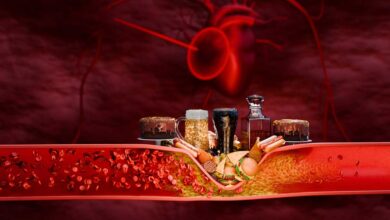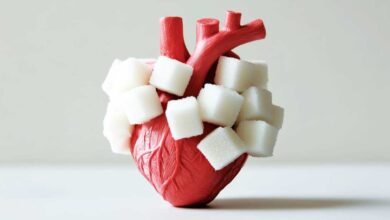Toward Better Management of Hypertension
Lifestyle Changes and the Latest Therapeutic Innovations

Recent advancements in hypertension management include the development of new drug classes, minimally invasive procedures for specific causes, enhanced methods for blood pressure monitoring, and improved strategies to support treatment adherence. These innovations hold promise for better blood pressure control, particularly in patients with resistant or secondary hypertension, and are expected to reduce the global burden of cardiovascular disease.
These innovations are especially significant, as hypertension is a major risk factor for cardiovascular conditions. By improving hypertension management; especially among hard-to-treat patients—we can reduce the incidence of heart attacks, strokes, kidney failure, and other serious complications, ultimately leading to better population health and lower healthcare costs worldwide.
Modern pharmacological and therapeutic options represent a significant leap in hypertension care, offering more effective treatment choices that target specific disease mechanisms. This paves the way for better patient outcomes and fewer long-term complications. Nevertheless, it is essential to emphasize that selecting the appropriate treatment must always be guided by a specialized physician, based on individualized assessment.
Over the decades, hypertension treatments have evolved substantially. Historically, treatment options were limited. However, with scientific advancements and a deeper understanding of blood pressure regulation, new drug classes have emerged, targeting different physiological pathways. There is also growing emphasis on personalized medicine that considers underlying causes of hypertension and patient-specific characteristics.
Hypertension is a common medical condition in which the long-term force of blood against artery walls is high enough to potentially cause health problems, such as heart disease. Blood pressure refers to the force exerted by circulating blood on the walls of blood vessels. When this pressure is consistently too high, it can damage the arteries and lead to various health complications.
Blood pressure is typically measured using two numbers:
- Systolic pressure: the top number, which indicates the pressure in the arteries when the heart beats (contracts) and pumps blood.
- Diastolic pressure: the bottom number, which reflects the pressure in the arteries when the heart rests between beats.
A normal blood pressure reading is around 120/80 mmHg. Hypertension is generally defined as consistent readings of 130/80 mmHg or higher over time.
There are two main types of hypertension:
- Primary (essential) hypertension: the most common form, developing gradually over many years. Its exact cause is not always clear but is likely a combination of genetic predisposition, lifestyle choices (such as unhealthy diet, physical inactivity, obesity, smoking), and age-related changes in the body.
- Secondary hypertension: caused by an underlying medical condition. These may include kidney disease, adrenal gland tumors, obstructive sleep apnea, thyroid disorders, certain medications (such as contraceptive pills, decongestants, pain relievers), and illicit drugs (like cocaine or amphetamines). Secondary hypertension often develops suddenly and tends to be more severe than primary hypertension.
Hypertension is often called the “silent killer” because many people with the condition exhibit no symptoms for years, even when the condition is severe. Uncontrolled high blood pressure can significantly increase the risk of life-threatening conditions, including:
- Heart attacks and strokes: damaged arteries may become narrowed or blocked, leading to such events.
- Heart failure: the heart must work harder to pump blood against elevated pressure, which may weaken or enlarge it over time.
- Kidney disease: high blood pressure can damage kidney blood vessels, impairing their function.
- Vision problems: it may damage blood vessels in the eyes, leading to vision loss.
- Vascular dementia: reduced blood flow to the brain, due to arterial damage, can contribute to cognitive decline.
Managing Hypertension
The good news is that hypertension can often be effectively managed through lifestyle changes and medication.
Healthy Diet
Adopting a healthy diet is a cornerstone of hypertension management. This includes meals rich in fresh fruits and vegetables, high-fiber whole grains, and lean protein sources such as poultry, fish, and legumes.
Equally important is significantly reducing sodium intake, commonly found in processed and fast foods, as well as limiting saturated and trans fats and cholesterol, which contribute to atherosclerosis and increase heart disease risk. Physicians often recommend the DASH diet (Dietary Approaches to Stop Hypertension) due to its proven effectiveness in lowering blood pressure and enhancing overall cardiovascular health.
Regular Physical Activity
Consistent physical activity is integral to blood pressure control. It is recommended to engage in at least 150 minutes of moderate-intensity aerobic exercise per week (e.g., brisk walking, cycling, swimming), or 75 minutes of vigorous aerobic activity (e.g., running, high-intensity workouts).
Exercise strengthens the heart muscle, improves circulation, helps maintain a healthy weight, and contributes to lowering blood pressure and reducing cardiovascular risk.
Maintaining a Healthy Weight
Weight plays a critical role in blood pressure regulation. For individuals who are overweight or obese, losing even a modest amount of weight can significantly improve blood pressure levels. Weight loss reduces strain on the heart and blood vessels, enhancing their function and lowering the risk of hypertension-related complications.
Stress Management
Chronic stress can negatively affect blood pressure. Therefore, learning and practicing stress reduction techniques is vital for maintaining healthy levels. These techniques include relaxation exercises such as yoga, meditation, and deep breathing.
Such practices help calm the nervous system, reduce the release of stress hormones that may raise blood pressure, and promote a sense of well-being.
Limiting Alcohol Consumption
Excessive alcohol intake can elevate blood pressure. As part of an effective hypertension management strategy, it is advisable to limit or completely avoid alcohol. Reducing alcohol consumption improves blood pressure and lowers the risk of alcohol-related health problems.
Smoking Cessation
Smoking is a major contributor to vascular damage and significantly increases the risk of hypertension and its complications, including heart attacks and strokes. Quitting smoking is one of the most important steps a person can take to protect cardiovascular health and reduce overall disease risk.














